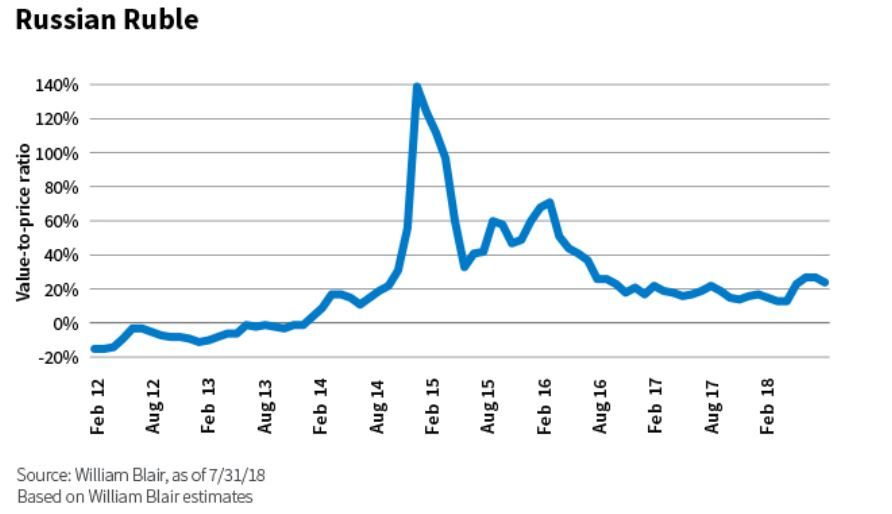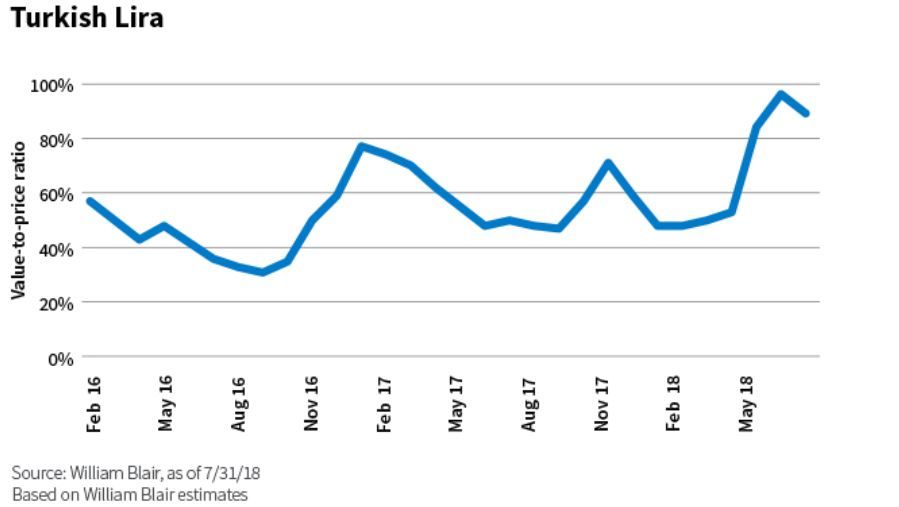
Turkey's President Tayyip Erdogan has recently engaged in a game of chicken against the markets broadly and the United States specifically. Over the course of the summer this game has escalated with the most recent move of the U.S. applying an increased level of sanctions on Turkey.
The secret to winning this game of chicken is for Erdogan to convince the opposing party of two things: that the opposition (be it the markets or the U.S.) will suffer relatively more from a prolonged battle and that Turkey will stay the course no matter what.
However, there is an issue with the game Erdogan has started—both opposing players are much stronger. As such, he is having trouble convincing these players that he can win this game.
But even if both the markets and the U.S. see Erdogan as credible, he still has an uphill battle to victory.
He has shown an astonishingly high level of risk tolerance and the ability to stave off two important truths: the Turkish economy is heavily reliant on foreign investors (i.e., the market) to finance its growth, and due to the sheer size of the U.S. economy, Turkey has little endowment power (borrowing from our Game Theory lens) to fight back.
Therefore, it is hard to envision how Turkey can win either game of chicken, much less win them simultaneously.
The Turkish central bank has already partially acknowledged its dependence on foreign investors, recently raising interest rates by 5% to 17.75%, which is significantly above the consensus inflation for 2018 (13.3% as of August 9).
Consequently, this situation provides a significant carry (interest-rate differential) opportunity for investors in the lira, but comes at a very high cost for the Turkish economy.
Based in part on this positive signal of raising rates, we increased our position in the Turkish lira (TRY) in late May of this year.
In response, Erdogan has worked against this effort by the central bank by making controversial political decisions such as naming his son-in-law as finance minister and entering into a direct confrontation with U.S. President Donald Trump.
As a result, Turkey now finds itself in a full blown currency crisis.
This ability of Erdogan to resist facts has recently resulted in disappointing performance for our (long) TRY position (as well as our currency strategy more broadly).
Presently, Erdogan remains backed into a corner, from which he must attempt to emerge without losing face. To a populist leader, like President Erdogan, appearances are often more important than facts.
Therefore, we believe the most likely outcome is that Turkey will negotiate behind the scenes with the U.S. to find a solution and slowly de-escalate the situation while maintaining a high interest rate to attract foreign investors.
Fundamentals Will Ultimately Matter
For fundamental macro investors, appearances often matter very little. We are more focused on economic factors such as the levels of inflation and nominal interest rate set by the central bank.
These variables, along with the purchasing power of the lira, will ultimately determine the path Turkey's currency will take over the medium term.
Although the lira has depreciated significantly, the recent crisis creates a significant investment opportunity—we estimate that the lira's exchange rate is just below 2x what its fundamental value dictates (i.e., it is 50% weaker than the real equilibrium exchange rate) and offers a real interest rate carry of 7.5% per annum.
When these two aspects are analyzed in combination, this represents a value-to-price ratio near 100%, which is extreme even for an emerging currency.
But, such large opportunities do occur in currencies with some regularity—e.g., Indian rupee (INR) in 2013 and Russian ruble (RUB) in 2015 to cite a couple of recent examples). However, it is never the case that such large opportunities occur in a vacuum without a very elevated level of volatility.
Successful navigation of these large opportunities involves skillfully timing as well as appropriately withstanding the interim performance bumps and volatility that emanate from the exposure on its way toward fundamental value.
Lira Very Attractive
And this is exactly what we are doing now—navigating. We stepped into this attractive fundamental opportunity in a relatively cautious manner because of our concern with Erdogan's erratic decision-making process.
Our exposure in the lira has been and remains well below what fundamentals alone suggest, and, as a result, this navigation has provided us ample risk capital to increase our position in order to seek to take advantage of what we believe to be a very attractive investment opportunity.
In pursuing this opportunity we will remain mindful of our timing, and are very aware of the possibility that TRY could deteriorate further before it improves. Opportunities of this magnitude come with risks, the potential for some pain, and the virtual impossibility of perfect timing.
Understanding this, as we look ahead, we do so with an eye on when and how best to deploy additional risk capital to seek to take advantage of not only the Turkey-oriented opportunities, but also the broader opportunities that have emanated from this game of chicken.
Edouard Senechal, CFA
Senior Analyst Dynamic Allocation Strategies team
William Blair Investment Management
Tipp: Dieser Beitrag ist auch im "Investment Insights"-Blog von William Blair verfügbar.
William Blair Updates per E-Mail erhalten







